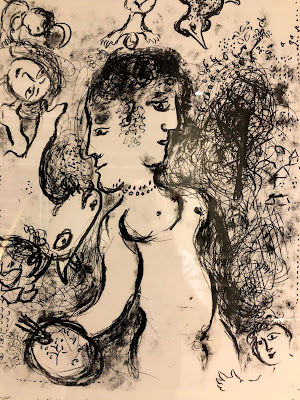There is Simply Too Much to Think About by Saul Bellow 1915--2005
"...When it came to wondrous lucidity in the service of an uncanny literary empathy– to a steady downpour of intelligence–to a direct contact with reality– to sensibility attuned to the contradictions and incongruities–he was unrivaled. The book of Bellow's correspondence collected several years back by Benjamin Taylor–the same intrepid editor who is the harvester here – there is simply too much to think about further extend their sense of Bellow's extremely humane way of experiencing books, people, events and places. One witnesses his excited mind, in a molten state, running over." --Philip Roth
This author was highlighted in a question corralling America's greatest writers--he was not included much to the writer's dismay. I read on about the excellence of Bellow's style, content and depth of thought in his work in fiction. I've been focused on non-fiction for the best part of a year now; so I looked in the Port Credit library for subjects Mr. Bellow had included in a non-fiction category. Up popped this book.
The titles of the essays contained therein to name a few: Written in the Fifties--Laughter in The Getto, Hemingway and the Image of Man, The Writer and The Audience, A Talk with the Yellow Kid [this one is about a conman, a swindler, a crook who only swindled the bad guys who deserved it.] and several others. And in the Sixties he wrote more, and more in the Seventies, Eighties and Nineties and After.
Mr. Bellow was born right at the end of WW1. For the purposes of this blog I'm going to skip to the obituary written by Mel Gluscow and Charles McGrath on April 6, 2005. "Saul Bellow the Nobel Laureate and self-proclaimed historian of society whose fictional heroes and whose scathing unrelenting and darkly comic examination of their struggle for meaning, gave new immediacy to the American novel in the second half of the 20th Century, died yesterday at his home in Brookline Massachusetts at 89."
Mr. Bellow said, "I cannot exceed what I see. I am bound, in other words, as the historian is bound by the period he writes about, by the situation I live in." But his was a history of a particular and idiosyncratic sort.
I say, "I've read several essays and appreciate the art form which is his usage of the English language describing his loves and experiences." More will follow at a later date.
Mr. Bellow writes about the author Abraham Cahan who wrote The Rise of David Lewinsky from the poorest of the poor Jewish families in Russia where a crust of bread was a meal; where school was a charity, or at best for young David, a school that cost his mother the equivalent of twenty-five cents a month which would give young David a better education along with daily beatings at the hands of some of his teachers as well as learning basic self defence from the richer kids in his class.
I've read 50% of the material in his collection of essays, enjoyed most of them, and quietly put it aside to reacquaint with Conrad Black's Backward Glances. (This being a favourite of mine that I returned to the Library, reordered it and then put an additional hold on it.)
Bellow is a great American writer acclaimed by many, critic of other writers acknowledged and admired in this collection, but most importantly a master of his art. I learned a lot here. Thank you Mr. Bellow
Mr. Bellow was born right at the end of WW1. For the purposes of this blog I'm going to skip to the obituary written by Mel Gluscow and Charles McGrath on April 6, 2005. "Saul Bellow the Nobel Laureate and self-proclaimed historian of society whose fictional heroes and whose scathing unrelenting and darkly comic examination of their struggle for meaning, gave new immediacy to the American novel in the second half of the 20th Century, died yesterday at his home in Brookline Massachusetts at 89."
Mr. Bellow said, "I cannot exceed what I see. I am bound, in other words, as the historian is bound by the period he writes about, by the situation I live in." But his was a history of a particular and idiosyncratic sort.
I say, "I've read several essays and appreciate the art form which is his usage of the English language describing his loves and experiences." More will follow at a later date.
Mr. Bellow writes about the author Abraham Cahan who wrote The Rise of David Lewinsky from the poorest of the poor Jewish families in Russia where a crust of bread was a meal; where school was a charity, or at best for young David, a school that cost his mother the equivalent of twenty-five cents a month which would give young David a better education along with daily beatings at the hands of some of his teachers as well as learning basic self defence from the richer kids in his class.
I've read 50% of the material in his collection of essays, enjoyed most of them, and quietly put it aside to reacquaint with Conrad Black's Backward Glances. (This being a favourite of mine that I returned to the Library, reordered it and then put an additional hold on it.)
Bellow is a great American writer acclaimed by many, critic of other writers acknowledged and admired in this collection, but most importantly a master of his art. I learned a lot here. Thank you Mr. Bellow



Comments
Post a Comment